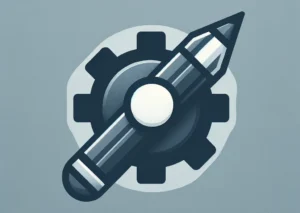Have you ever stood in the shadow of a skyscraper, awed by its design, only to realize the blueprint of your career needs a renovation? Swapping circuit diagrams for stethoscopes, you’re not alone in the leap from engineering to healthcare.
This blog post is your guide to repurposing your technical acumen in a field that beats with human hearts rather than electric currents.
Quick Takeaways:
- Dive into research and networking to discover healthcare roles that align with your engineering skills, and consider volunteering to gain firsthand insight.
- Bridge the educational gap with tailored programs, leveraging your engineering experience for credit, and explore part-time or online study options to keep working.
- Consider the long-term fulfillment and stability healthcare offers, even if it means initial lifestyle adjustments or further education.
Why Pursue a Career in Healthcare After Engineering?
Switching gears from engineering to healthcare might seem like a leap, but the pull towards a profession that revolves around improving and saving lives can be compelling. At the core of many engineers’ motives is the desire for direct human impact. The chance to roll up your sleeves and make a tangible difference in someone’s day-to-day wellbeing adds a whole new layer of personal fulfillment.
It’s not just about the heartstrings, though. The intellectual and practical challenges in healthcare can be a strong magnet for problem-solvers accustomed to the rigors of engineering. Crafting solutions in healthcare can involve a complex blend of science, empathy, and improvisation, a mix that can be highly rewarding for the right individual.
Plus, engineers bring a set of transferable skills that are pretty valuable in healthcare. Think of project management, analytical thinking, and a methodical approach to problem-solving. These are golden in healthcare settings where efficiency and precision often go hand in hand with patient care.
What Steps Should I Take First?
Feet first: research is your starting block. Dive into every nook and cranny of healthcare roles and find where your passion meets practicality. Are you leaning towards being a hands-on medical device engineer, or do you envision yourself as a healthcare administrator?
Don’t underestimate the power of a good chat. Talking to professionals already in the field can give you insider info you won’t find on any website. They can share experiences, advice, and perhaps offer opportunities for shadowing, which leads us to our next move: volunteering. Getting a feel for the environment and understanding the demands of healthcare first-hand can be eye-opening.
Make sure you’re clued up on the educational prerequisites for your desired role. You might discover you can capitalize on some of your existing credits or experience.
How Do I Bridge the Educational Gap?
Let’s talk nuts and bolts. If you’re aiming for a clinical position, you’re probably looking at some serious schooling. We’re talking certifications, degrees, maybe even med school. But don’t let that deter you. The journey can be as flexible as you need it to be. Here’s how:
- Hunt for bridge programs designed for professionals transitioning into healthcare.
- Keep your day job and consider part-time or online study options. Many reputable institutions offer these flexible arrangements.
Unique tip? Seek out institutions that offer credit for work experience. Your years in engineering might just fast-track your studies.
- Aim for additional certifications that can be tackled one step at a time, like a Certified Clinical Engineer (CCE) if you’re gunning for a biomedical role.
To wrap it up, remember this isn’t just a career change; it’s a lifestyle shift. Approach it with the same precision and dedication you brought to engineering, and the transition to healthcare could be the most rewarding project you’ll ever undertake. Keep your chin up, stay curious, and let that desire to make a difference fuel your journey forward.
Can My Engineering Skills Really Benefit the Healthcare Industry?
Absolutely! Making the leap from engineering to healthcare might seem like venturing into uncharted waters, but rest assured, your engineering toolkit is chock-full of skills that can work wonders in the health sector. Let’s talk turkey: healthcare is a complex, ever-evolving field where problem-solving, efficiency, and innovation are the lifeblood of progress. And who’s better equipped for that than an engineer?
For starters, biomedical engineering is a no-brainer for engineers eyeing a healthcare pivot. Picture yourself designing cutting-edge medical devices that save lives, or developing artificial organs—cool, right? Your technical chops from engineering are precisely what’s needed to excel in such a role.
But wait, there’s more. Health data analytics is another arena ripe for engineering prowess. In a world drowning in data, your knack for number-crunching and pattern-spotting can help healthcare providers make smarter decisions, tailoring treatments to the T.
And let’s not overlook healthcare technology management. It’s all about keeping the gears of medical technology running smoothly. From ensuring MRI machines are humming perfectly to implementing new healthcare IT systems, engineers bring a meticulous, analytical approach that’s worth its weight in gold.
Tying this back to real-world impact, let’s spotlight John Doe, an electrical engineer turned healthcare technologist. John took his expertise in sensor technology and ran with it, revolutionizing the way patient monitoring devices are used in hospitals to create a more responsive and effective patient care environment.
Your can-do attitude as an engineer, blended with a passion for elevating patient care, could literally rewrite the script on healthcare as we know it.
What Are the Financial and Lifestyle Implications?
Let’s get down to brass tacks. Switching careers does come with its share of trade-offs and perks. On one hand, you might face a pay cut initially, especially if you’re starting anew in an entry-level healthcare position. On the other, some healthcare roles, especially those in biomedical engineering or healthcare IT, can be quite lucrative once you’ve climbed the ranks a bit.
In terms of job security, healthcare is booming, and it isn’t taking a breather anytime soon. Aging populations and technological advancements mean there’s a steady demand for skilled pros. So if job stability gives you peace of mind, healthcare’s got your back.
But let’s talk lifestyle. If you’re coming from a standard 9-to-5 engineering job, healthcare could throw you for a loop with its round-the-clock schedule. Think night shifts and on-call hours. However, there’s a silver lining—being part of a team that helps individuals regain their health can be immensely fulfilling on a personal level.
Long-term, investing in additional education for a healthcare gig could beef up your retirement savings, thanks to pension plans and benefits often associated with healthcare roles.
Here’s the kicker: a career in healthcare can offer a sense of purpose that’s hard to put a price tag on. You’re making a palpable difference in people’s lives, and that can bring a level of job satisfaction that’s through the roof.
Pro tip: If you’re on the fence, consider shadowing healthcare professionals or volunteering at medical facilities to get a taste of what the future might hold. It’s a move not everyone thinks about, but it can offer priceless insights and experiences that’ll help you decide if this path is your cup of tea.
In essence, transitioning from engineering to healthcare is not just about swapping a hard hat for a stethoscope, it’s about aligning your skills with a purpose-driven career that has the potential to enrich lives—yours included. So go ahead, take the pulse on this new adventure. It might just be what the doctor ordered.






